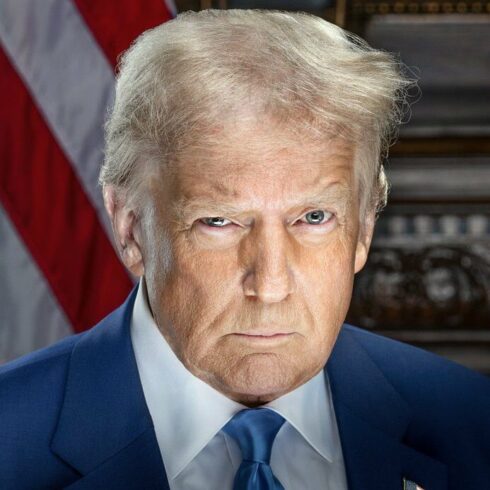Donald Trump’s political beliefs have evolved significantly over the years, but his stance on tariffs has remained unwavering since the 1980s. He has long argued that tariffs are a crucial tool for reviving the U.S. economy and protecting American workers from unfair foreign competition.
During his tenure as a real estate mogul and television personality, Trump often criticized free trade agreements such as NAFTA and the World Trade Organization (WTO), viewing them as detrimental to American manufacturing. As president, he had already enacted tariff policies in his first term, but the sweeping trade measures announced in his second term mark the most aggressive implementation of his economic philosophy to date.
Standing in the White House Rose Garden, Trump delivered a triumphant speech surrounded by supporters, conservative politicians, and cabinet officials. He declared that America was finally reclaiming its economic destiny. “For years, hardworking American citizens were forced to sit on the sidelines as other nations got rich and powerful, much of it at our expense,” he said. “With today’s action, we are finally going to be able to make America great again – greater than ever before.”
A High-Stakes Economic Gamble
Trump’s latest move imposes massive tariffs—53% on China, 20% on the European Union and South Korea, and a 10% baseline tariff on all nations. While these measures are designed to bring jobs back to the U.S. and reduce reliance on foreign manufacturing, they also come with significant risks.
Economists from across the political spectrum warn that these tariffs will likely be passed on to American consumers in the form of higher prices. Ken Rogoff, a former chief economist at the International Monetary Fund, cautioned that these actions could have dire consequences. “He just dropped a nuclear bomb on the global trading system,” Rogoff said, adding that the U.S. now faces a 50% chance of recession due to these policies.
Despite these warnings, Trump remains steadfast. He urged Americans to trust his instincts and dismiss critics as “globalists” and “special interests” who have misled the country for decades. “Never forget, every prediction our opponents made about trade for the last 30 years has been proven totally wrong,” he asserted.
Straining Global Alliances
The sweeping tariffs have not only sparked concerns at home but have also strained relationships with key U.S. allies. Japan and South Korea, once seen as crucial partners in countering Chinese influence, have responded with strong objections, signaling potential retaliatory measures.
The European Union, already at odds with the U.S. over trade policies, has vowed to challenge these tariffs through the WTO and is considering imposing its own countermeasures. European Commission officials have warned that Trump’s unilateral trade war could destabilize global markets and disrupt supply chains worldwide.
China, the primary target of Trump’s trade war, has yet to respond formally, but analysts predict that Beijing will retaliate with tariffs of its own, potentially triggering a prolonged and damaging economic standoff. This escalation threatens to undermine the very economic stability that Trump claims his policies will restore.
Reshaping the Global Economic Order
If Trump’s tariffs achieve their intended goals, they could fundamentally reshape global trade in America’s favor. The president argues that these policies will reignite American manufacturing, generate new sources of revenue, and make the U.S. more self-sufficient, reducing dependence on foreign supply chains.
Proponents of Trump’s strategy see this as a necessary correction to decades of economic policies that favored globalization over national interests. They believe that while there may be short-term pain, the long-term benefits will outweigh the initial economic turbulence.
However, skeptics argue that such a dramatic overhaul of the global trade system is unrealistic and fraught with peril. They point to the severe disruptions that occurred during the COVID-19 pandemic when supply chain breakdowns highlighted the complexities of international trade. By isolating the U.S. from traditional trade partners, they warn, Trump may be creating more problems than he solves.
A Defining Moment for Trump’s Legacy
Trump’s tariff strategy marks one of the most significant economic gambles of his presidency. If successful, he will be credited with rebuilding American industry and securing a stronger, more independent U.S. economy. However, if his policies backfire, they could lead to economic turmoil and political fallout that could define his legacy in a far less favorable light.
His speech, filled with confidence and bravado, suggested that he sees this moment as a defining victory. “It’s going to be a day that—hopefully—you’re going to look back in years to come and you’re going to say, you know, he was right,” Trump concluded.
Only time will tell whether this bold maneuver will be remembered as a masterstroke of economic strategy or a costly miscalculation.














